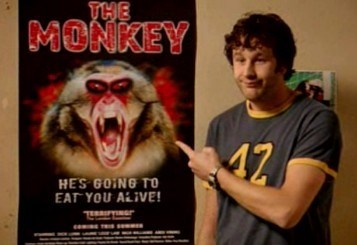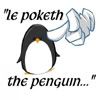Languorous Lass wrote:
1.) I enjoyed the more literary books as well, but Nancy Drew will always have a special place in my heart, because she was one of the few female role models that weren't ditzy and always needing to be rescued by the boys.
2.) I was also a big comic book fan, but even a character like Lois Lane -- who's pretty competent and confident as depicted these days -- was shown back then as a Lucy Ricardo-type schemer whom Superman kept saving from the consequences of her "harebrained schemes." And Supergirl was a lonely orphan who kept getting her heart broken. Nancy was the only genre heroine I knew of who was calm and unflappable and unfailingly logical. So the way the movies portrayed her is particularly galling.
...
3.) I could probably enjoy the movies -- if their main character wasn't named "Nancy Drew." The movie Nancy is so completely opposite from what the Nancy on the page stands for that if I were a conspiracy theorist, I might even believe that the movies were deliberately designed to undercut the positive message that the book-Nancy conveys. (Good thing I'm not a conspiracy theorist, eh?)
1.) I don't know if I'd call the works
more literary than the Nancy Drew books. The markets-- the intended audiences-- were different; that's all.
Part of the pleasure I get from reading any mystery arises from generic expectations. Mysteries and crime fiction are examples of popular fiction. Critical and academic interpretations aside, I dig such reading material because it's unabashedly and nakedly fun.
All of which means, I guess, that the word "literary" seems to imply "quality" in too many conversations, and I think that what constitutes "quality" varies according to expectation and form/genre.
In short, I liked the books I mentioned, and I'm still partial to them. I'm not sure I can explain
why I enjoy them.
They're damned good at what they set out to do. I suppose that's one explanation...
2.) Yeah, a lot of comics were-- and are-- pretty sexist. Forget Lois Lane; there's the whole "women in refrigerators" phenomenon. And there are worse examples of woobification than Supergirl, sad as that sounds.
3.) Actually, I'm not disagreeing with you on the way Nancy's portrayed in the films. I find the films amusing precisely because I see them as a kind of cultural reaction formation to the original texts. To put it another way, if the books are cheese, the films are Velveeta or maybe even Cheez Whiz. (I suppose the latter is a better analogy, given the "gee whiz" nature of the books.)
When I say I find the films "amusing", I'm not suggesting that I approve of such portrayals of female characters or find the films "funny" in a ha-ha way. I mean that such films give me a renewed appreciation for, say, Kate Hepburn, who would've made a great adult Nancy.
It's amusing and entertaining and instructive to
read one text against another, or to look at something from a certain context. (Gawd, that sounded all lit-crit.) If I cheer for Fu Manchu, it's because I'm aware of the original Yellow Peril nonsense and because I live in the era of talk radio and Lou Dobbs, if that clarifies what I mean by "amusement".
It helps that Fu Manchu is a cool character, of course.

I'm also interested in attempts to "soften" or undermine powerful pop culture icons, simply because those icons can seldom be undermined in any significant way. Like most mythic figures, they survive their treatment at the hands of fools, or they appear to go out of style but influence some later creation; they
linger in the culture in some form or other, even if they have to mutate to survive.
When the originals are reworked in new and interesting ways, the distortion not only comments on the original, it demonstrates the power of the original. The distortions exist
because of those original forms. Imaro works both as a critique of Tarzan and Conan and as a tribute to the staying power of those characters, if that makes sense. Austin Powers works because of the cultural heritage the character evokes and mocks.
In the hands of fools-- and I think the makers of the Drew flicks were fools and hacks rather than truly gifted artists-- the distortion gives the original more power, more appeal.
I don't think you're paranoid. I think the studio wanted to "soften" Nancy to increase ticket sales.
The last laugh is on the folks who made the Nancy Drew films. If we watch the movies today, it's because we like or are interested in the original character. And
that is ha-ha funny to me.
Having said all these things, I'll add that I prefer other female characters to Miss Drew. Marian Halcombe in
The Woman in White comes to mind; I fell in love with that character, and I'm probably
still in love with her. (And really, isn't Hartright a jerk for preferring Marian's prettier, shallower sister, and isn't Marian that novel's
real protagonist? Collins was amazingly smart in his critique of Victorian culture, and most adaptations of the novel are either laughable or, at best, merely passable.) When I was younger, Miss Marple-- who could be a bitch in amazingly cool and often subtle ways-- rocked my world. Later, in a pulpier way, The Domino Lady did much the same thing; she struck me as being at least as cool as The Shadow or Doc Savage.
Tenser, said the Tensor.
Tenser, said the Tensor.
Tension, apprehension,
And dissension have begun.



